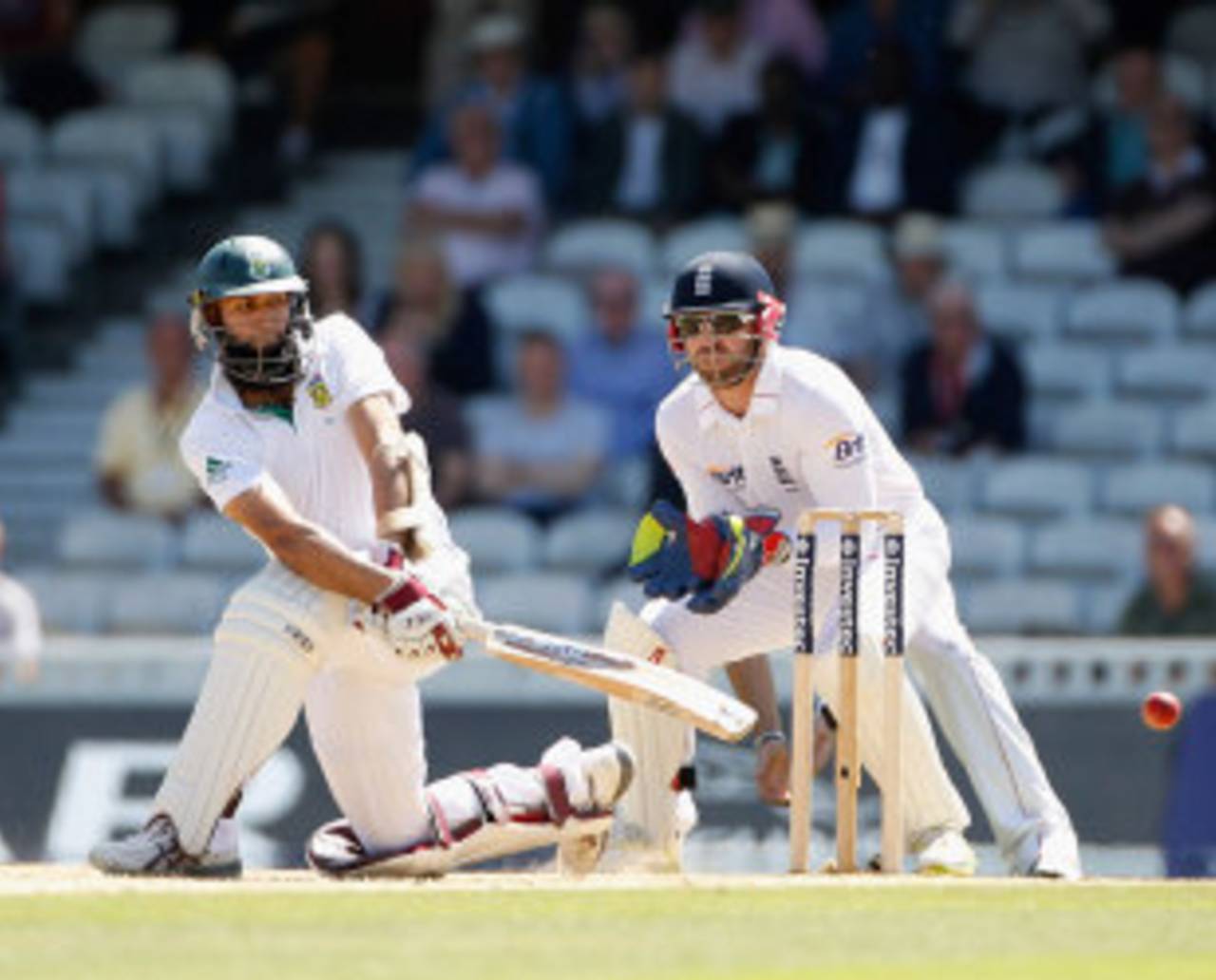For the first hour of both the third and fourth morning at The Oval, the cricket belonged exclusively to the purist. If a visitor who knew only Twenty20 had walked in and paid attention, he would have marvelled at the inertia and the interest given to it by a full house. Probably, he would have decided that it was not for him.
This is Test match cricket's great dichotomy. A brilliantly conceived game for another, more patient, age. Leonard Hutton batted 13 hours and 17 minutes when he broke Don Bradman's world record score here
at The Oval in 1938. Hutton was on the front page, back page and newsreel of every medium in the land. There is something quite sadistic about such play, something cold that tells one about the mind of the practioner.
Hashim Amla was at the wicket for 13 hours and 10 minutes while making 311. He showed not a hint of emotion during this time, batting without any evident joy or display of flourish. And yet his innings will long be remembered as an epic, one to cherish for its excellence and effect of course, but also for the pleasure brought by wristy brush strokes that add variety and style to the white and green canvas of a cricket field. For Amla, there will be reflected glory.
In the first hour today
Jacques Kallis made just 12 runs; Amla 24; South Africa only 36. England's bowling was straight and mainly full, as it had to be. The ball would not deviate a millimetre for the much celebrated home seam attack. When it did spin for
Graeme Swann the batsmen reacted with a technical mastery rarely seen in the age of crash, bang, wallop. On a pitch so true as this, 36 in the first 15 minutes of a T20 game would be the starting point for a violent assault. There are some miles in this pair and, sensing England's last hurrah, they stayed on the ropes, sucked up the punches and waited their moment. In the next hour, they scored 75. Enough said.
Unlike one-day cricket, where the limitation of overs dictates to players, Test cricket allows choices. There is Virender Sehwag's way and Rahul Dravid's way; Alastair Cook's and Kevin Pietersen's. The team needs both
Unlike one-day cricket, where the limitation of overs dictates to players, Test cricket allows choices. There is Virender Sehwag's way and Rahul Dravid's way; Alastair Cook's and Kevin Pietersen's. The team needs both, much as it needs steady Vernon Philander and magic Morne Morkel. Amla, like Kallis as it happens - this may not be a coincidence - prefers to stay within himself. This is smart for it gives the bowlers no expression of character with which to work. Think Bjorn Borg against John McEnroe. Some players you can tease or taunt. Others you can seduce. But not this pair.
God knows England tried everything. New ball, old ball, orthodox swing and reverse. Over the wicket and around, close to the wicket and wide. Slips and gullies. No slips or gully. Doubtless they said some stuff, little jibes to disturb concentration but the scoreboard rendered the side-of-the-mouth stuff useless. Off-side biased fields, leg-side fields (though not enough of those). Some cutters here and there, the odd bouncer (wasted). Lots of off-spin but no doosra - and thereby hangs a tale about a changed game in the modern era.
On slow pitches the doosra is the trump card simply because the batsmen cannot play back so safely. The doosra is the unknown: it is the fear of the unknown. With Swann covered, the threat of England's attack halved. Memo to the world - get Swann, diminish England.
Watching the South Africans warm up before play, one sensed seniority and authority. These were men with pedigree, men sure of themselves and comfortable with their game. It was not a surprise that Amla and Kallis played their first hour every bit as intelligently as Amla had played the first hour on Saturday with Graeme Smith. For once, England could not bully and it showed.
Some of us could not get enough of it, slaves to our fascination with the game that strips a man to the bone. It is not called Test cricket for nothing; 36 in the first hour on Sunday; for the record a mere 40 in the first hour on Saturday - 11 of which came in the last over of that hour. So two hours cricket, 76 runs, no wickets, barely an appeal. Loved it. We would take that, us fanatics, every day of the week. See, you just can't explain the thrill in the sheer tension of a Test match. If you transcend it when a player, as Amla and Kallis did, you often go on to win. Those of us who are watching think we have always won.
